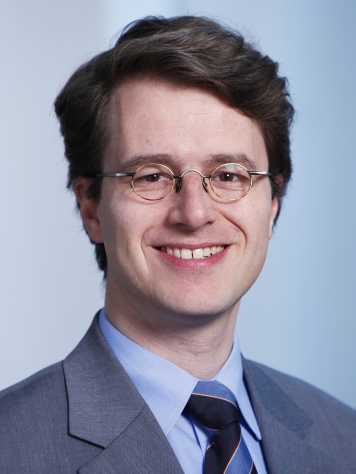ETH PhD Academy on Sustainability and Technology 2020
Understanding technological, organizational, and institutional processes for sustainability
To download the call for papers, please Downloadclick here (PDF, 619 KB)vertical_align_bottom.
14th to 19th of June 2020, ETH Zurich
During the last two years, public discussion around sustainability issues such as climate change, plastic waste, and economic and gender inequality have intensified. Prominent examples are social movements such as the Fridays for Future marches, calls for institutional change such as “New Green Deals,” the recent success of Green parties, and debates around new sustainable technologies such as utility-scale storage of renewable energy, bioplastics, or electric vehicles. Capitalizing on this increasing attention to sustainability issues while successfully developing and diffusing sustainable technologies requires coordinated, constructive, and interdisciplinary interaction between research and society.
This year’s academy focuses on technological, organizational, and institutional changes for sustainability. We provide a unique platform for junior researchers (PhD students and postdoctoral researchers) with a background in engineering, management, economics, and political sciences to present their work to an audience of diverse yet like-minded scholars and an international faculty with a record of accomplishments in research on energy and climate policy, environmental entrepreneurship and business, and sustainable technologies. Participants obtain detailed feedback on their research design, theoretical approaches, and methodology. In addition, we provide plenty of room for informal discussions and networking with other junior scholars and professors. Students in previous years have come from, amongst others, EPFL Lausanne, the Massachusetts Institute of Technology, Oxford University, Stanford University, the Technical University of Munich, and the University of Cambridge.
Research of the participants should focus on — but is not limited to — the following topics:
- Corporate sustainability, environmental management, and innovation strategies for sustainability
- Socio-technical and techno-economic assessment of sustainable technologies
- Process research methodologies in the context of sustainability
- Technology and innovation policy in the context of sustainability
- Innovation systems, institutional and technological change for sustainability
- Ecological change, circular economy, resilience and dynamics of social-ecological systems
The ETH Academy on Sustainability and Technology will take place in a hotel in the midst of the Swiss Alps. To guarantee an intensive learning process, attendance is limited to 15 participants. Third-party funding allows us to offer a participation fee of only CHF 450 (ca. 450 USD) which covers accommodation, meals, and excursions.
Please send your application to and include (i) a cover letter explaining your motivation, (ii) a paper proposal of max. 2 pages, and (iii) your CV. The deadline for application is 6 March 2020. We will send out notification of acceptance by 27 March 2020. Deadline for full paper submission (10-15 pages) is 8 May 2020. For additional information contact Julia Gergek. We look forward to receiving your application!

Dr. Gregory Nemet is Professor of Public Affairs at the University of Wisconsin-Madison.
Gregory Nemet's research focuses on understanding the process of technological change and the ways in which public policy can affect it. He teaches courses in policy analysis, energy systems, and international environmental policy. Supported by an Andrew Carnegie Fellowship, Nemet published a book in 2019, "How Solar Energy Became Cheap: A Model for Low-Carbon Innovation," about how solar photovoltaics provide a model for low carbon innovation. He was awarded the inaugural World Citizen Prize in Environmental Performance by APPAM in 2019 and is currently a lead author for the Intergovernmental Panel on Climate Change 6th Assessment Report.

Dr. Ann Langley is Professor of Strategic Management at HEC Montréal.
Her research focuses on strategic change, leadership, identity and the use of management tools in complex organizations with an emphasis on processual and qualitative research approaches. Her work has appeared in journals such as Academy of Management Journal, Academy of Management Review, Administrative Science Quarterly, Human Relations, Journal of Management Studies, Organization Science, Organization Studies and Strategic Organization. She is coeditor of Strategic Organization, and on the editorial boards of Academy of Management Journal and Organization Science. She is also series editor with Haridimos Tsoukas of Perspectives on Process Organization Studies published by Oxford University Press and is currently preparing a Sage Handbook of Process Organization Studies. She is a member of the Board of the European Group for Organizational Studies (EGOS) and was chair of the 29th annual EGOS Colloquium held in Montreal in 2013. She is adjunct professor at the Norwegian School of Economics and Business Administration and the Department of Health Administration at University of Montreal.

Dr. Johannes Meuer is Senior Researcher and Lecturer of Sustainability and Technology at the ETH Zurich.
Johannes’ research focuses on aspects of organizational design and innovation in the context of corporate sustainability. He draws on theories at the intersection of corporate sustainability, strategic management, and technological innovation to investigate strategies for firms to integrate sustainability into their strategies and business operations. Johannes also develops new methodological approaches based on set theoretic methods such as fuzzy set Qualitative Comparative Analysis (QCA), for example to integrate QCA in multi-level models or to extend QCA for the use of systematic comparative process analysis. He also applies these methods in various substantive field such as organization and innovation theory, strategic HRM, and production and operations management.
Johannes holds a PhD from Rotterdam School of Management, Erasmus University and an MSc in International Economics from Corvinus University Budapest. Before joining SusTec, Johannes worked as a SNSF post-doctoral researcher at the University of Zurich, held a position as an associate researcher at the Leibniz GIGA Institute of Asian Studies, and was a visiting fellow of the Cranfield School of Management.

Dr. Volker Hoffmann is full professor for sustainability and technology at the Department of Management, Technology, and Economics of ETH Zurich.
He received a diploma in chemical engineering from ETH Zurich in 1997 and a diploma in business administration from the University of Hagen, Germany, in 1999. In 1996/97 and 1999/2000 he worked as a visiting scholar and scientist at MIT where he investigated uncertainty propagation in large scale process models for the chemical industry (group of Gregory J. McRae). In 2001, he obtained his Ph.D. from ETH Zurich with a thesis on multi-objective decision making under uncertainty in chemical process design (group of Konrad Hungerbühler). Before joining the faculty of ETH Zurich in 2004, he was a project manager at McKinsey & Company where he worked in the chemical and electricity industry. He focused on strategy development for European utility companies, especially in the light of upcoming greenhouse gas regulations. During his career, Volker Hoffmann received several scholarships and awards including a German National Academic Foundation Scholarship (1994-97), an Ernest-Solvay-Scholarship (1996/97), and an Exchange Fellow Scholarship of the Alliance for Global Sustainability (1999/2000).
Volker Hoffmann's research at ETH Zurich centers on corporate strategies with respect to climate change, with a focus on climate policy, energy policy, and innovation. Recent research results are being published in journals such as the Journal of Management Studies, Long Range Planning, the California Management Review, Research Policy, Climate Policy, Energy Policy, Global Environmental Change, the Journal of Industrial Ecology, Policy Sciences, Environmental Science & Policy, Energy Economics, the European Management Journal, Business Strategy & the Environment and Ecological Economics.
